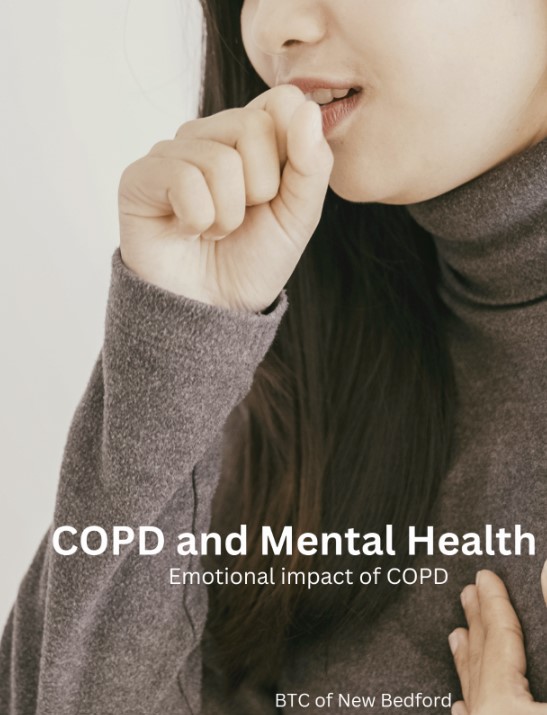Living with chronic obstructive pulmonary disease (COPD) presents not only physical challenges but also significant implications for mental health. Let’s unravel the relationship between COPD and mental well-being and shed light on the often-overlooked emotional aspects of this respiratory condition.
The Emotional Toll of COPD
The emotional effects of COPD vary from person to person. However, living with COPD can lead to increased depression and anxiety. It can be challenging to manage these symptoms and can make a large impact on daily life and mental health issues. Some who are living with this condition may begin to fear for the future and what they may have to deal with for the long-term. As this is a progressive condition there can be a fear of uncertainty for the quality of life. Some symptoms of COPD include shortness of breath, which can limit engagement in social activities, leading to isolation, loneliness, and frustration.
Pre-existing mental health issues can significantly impact both the progression and management of Chronic Obstructive Pulmonary Disease (COPD) in several ways. Individuals with pre-existing mental health conditions, such as depression or anxiety, may struggle with adapting to their COPD treatment plans. This can include forgetting to take their medications, skipping healthcare appointments, and/or neglecting self-care like exercise and proper nutrition.
Mental health issues can lead to unhealthy coping mechanisms, such as smoking, substance abuse, or poor dietary choices. These behaviors can exacerbate COPD symptoms and contribute to its progression. Mental health issues can also affect cognitive function and decision-making abilities, making it challenging for individuals to effectively manage their COPD symptoms. This can result in failure to recognize worsening symptoms, and delayed seeking of medical help during exacerbations.
Managing COPD
COPD itself can be stressful due to its impact on daily functioning and quality of life. Pre-existing mental health conditions can exacerbate this stress, leading to a negative cycle where stress worsens COPD symptoms, which in turn increases stress levels further. Depression and social anxiety can contribute to social isolation and withdrawal from support networks. Social isolation has been linked to worsening COPD outcomes, including decreased physical activity, reduced treatment adherence, and increased risk of exacerbations. COPD management can be very effective, medication adherence, pulmonary rehabilitation, and lifestyle changes, can positively influence mental well-being and enhance overall quality of life.
Addressing pre-existing mental health issues alongside COPD management is essential for improving outcomes. This may involve integrated care approaches that address both physical and mental health needs, including counseling, therapy, support groups, and medication management. Making your healthcare professional aware of the need for mental health assessments into your COPD care plan is important.
In conclusion, recognizing and addressing the intersection of COPD and mental health is crucial for comprehensive healthcare. By fostering a holistic approach that considers both physical and emotional well-being, we can enhance the overall quality of life for individuals living with COPD and provide much-needed support for their mental health journey. BTC of New Bedford has a clinical trial for COPD that you or a loved one may qualify to participate in, call us today to learn more 508-990-9555.

